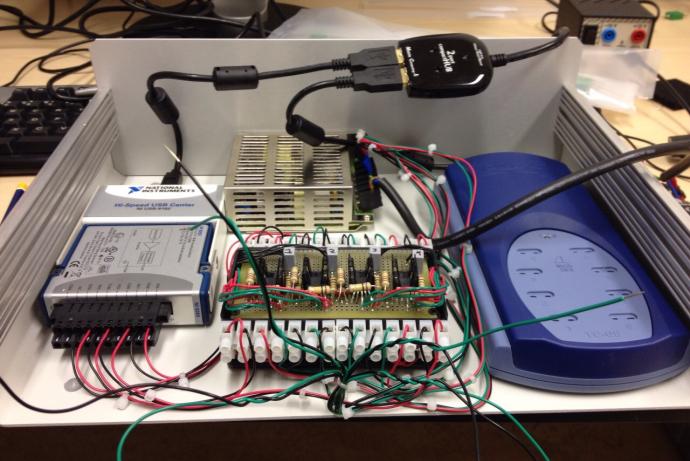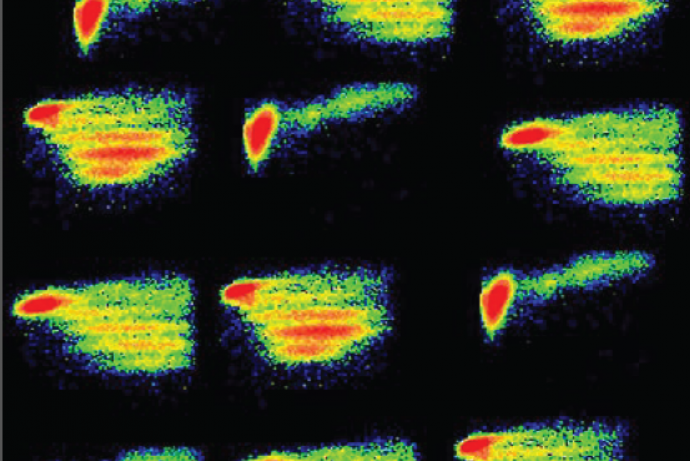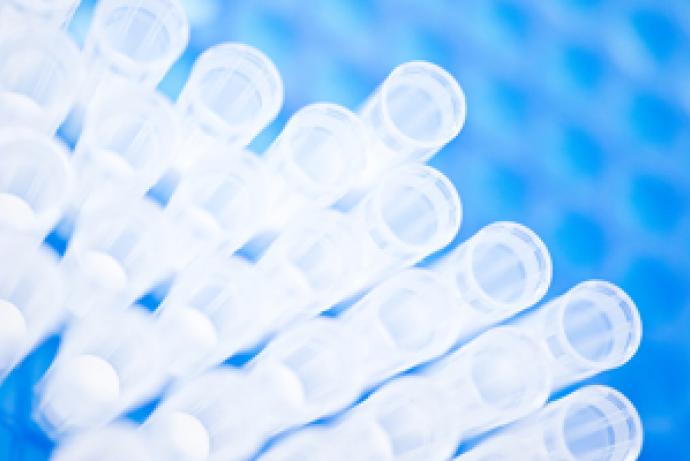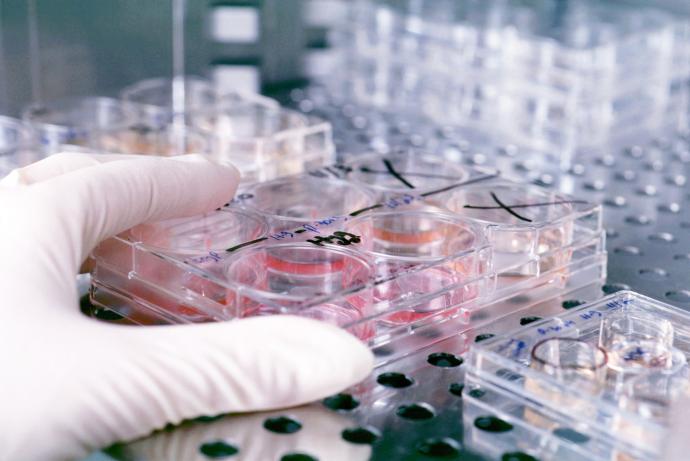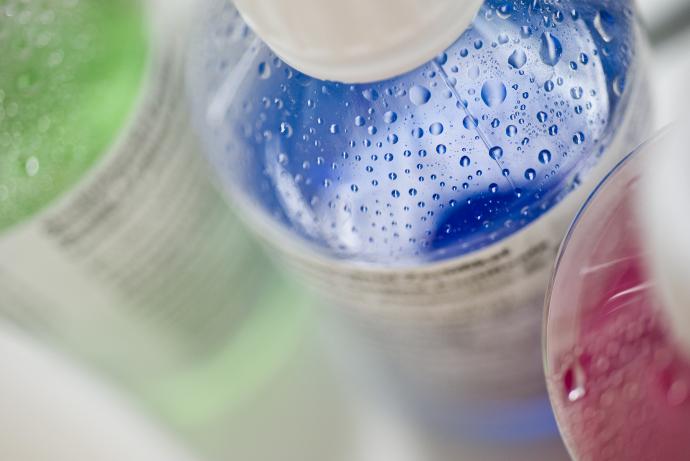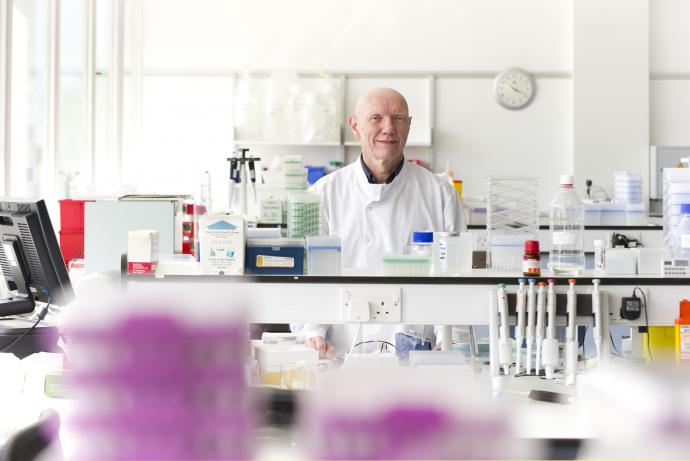Affimers are engineered binding proteins that possess all the desirable properties of antibodies, such as high specificity and affinity, whilst avoiding all the problems commonly associated with antibody use, such as cross-reactivity and fragility. These animal-free alternatives to antibodies can be used in almost any application where animal-derived antibodies are currently employed. Custom Affimers can even be made in cases where it is impossible to raise antibodies: targets do not need to be immunogenic, and toxicity to the host is not an issue. Avacta Life Sciences are seeking partners to help in the validation and development of Affimers.
Through CRACK IT Solutions, Avacta Life Sciences partnered with the Mary Lion Centre at MRC Harwell on a Solutions funded project to develop Affimers as a new tool for increasing the efficiency of genetically engineered mouse production.
Although applications such as ELISA and FACS are dominated by antibodies, an analysis by the Human Atlas Project of over 5400 antibodies from 51 different antibody providers revealed that roughly half (51%) fail to bind with the required affinity or specificity for performance in one or more assays (Berglund et al., 2008).
Multiple technologies have been developed as alternatives to antibodies. Nucleic acid aptamers have been around since the late 1980s, and since the first papers describing Affibodies in 1995, forty-five non-antibody scaffold proteins have been described in the literature. Success for nucleic acid aptamers has been limited, with success rates in screens against proteins being as low as 30% (Gold et al., 2010) and, where successful, the protein scaffold alternatives have been applied almost exclusively to therapeutics. Therefore, an alternative to these existing animal-free antibodies is required.
References
- Berglund L, Björling E, Oksvold P, et al. (2008). A genecentric Human Protein Atlas for expression profiles based on antibodies. Mol Cell Proteomics 7(10): 2019-27. doi: 10.1074/mcp.R800013-MCP200
- Gold L, Ayers D, bertino J, et al. (2010). Aptamer-based multiplexed proteomic technology for biomarker discovery. PLOS One 5(12): e15004. doi: 10.1371/journal.pone.0015004
Affimers are based on a family of biologically and biophysically stable cathepsin protease inhibitors called stefins or cystatins. The stefin A protein (Woodman et al., 2005; Stadler et al., 2011) or a consensus plant cystatin sequence (Tiede et al., 2014) have been engineered so that they no longer bind to their natural ligands and do not possess significant affinity for human proteins, reducing background caused by non-specific binding in detection assays. The engineered proteins, less than 100 amino acids in length, are called the Affimer scaffold. Random peptide loops are grafted onto the scaffold, creating large libraries of candidate affinity reagents, or Affimers. These are readily expressed in E. coli, contain no internal cysteine residues (although these can be added when necessary for assay development purposes) and, unlike antibodies, do not require post-translational modification. Affimers are thermally stable (Tm between 70 and 100°C) and are resistant to both low (~2) and high pH (~13). Affimers can be developed in less than 7 weeks against almost any target, and possess the desirable features of antibodies but:
- They require no animal host. This means a reduction in animal use, toxic targets can be screened, targets do not need to be immunogenic and there is no risk of contaminating products with animal-derived viruses.
- They are easier to develop, manufacture and modify. In vitro selection requires just 50 µg of starting target material and yields of 10-100 mg purified protein/litre of bacterial shaker culture are routine.
Libraries of >1010 Affimers can be quickly screened in vitro, building in negative selection so as to avoid cross-reactivity to related proteins where this is likely to be a problem for the end user.
Affimers can be made against almost any target and can be used in any assay where an antibody is, or could be, used. All the Affimers in Avacta Life Science’s catalogue have been tested in ELISA and many are being used in techniques such as immunofluorescence, immunohistochemistry and FACS as well as more challenging applications such as Super Resolution Microscopy and in Biosensing (see www.avacta.com for details).
References
- Woodman R, Yeh JT, Laurenson S, et al. (2005). Design and validation of a neutral protein scaffold for the presentation of peptide aptamers. J Mol Biol 352(5): 1118-33. doi: 10.1016/j.jmb.2005.08.001
- Stadler LK, Hoffmann T, Tomlinson DC, et al. (2011). Structure-function studies of an engineered scaffold protein derived from Stefin A. II: Development and applications of the SQT variant. Protein Eng Des Sel 24(9): 751-63. doi: 10.1093/protein/gzr019
- Tiede C, Tang AA, Deacon SE, et al. (2014). Adhiron: a stable and versatile peptide display scaffold for molecular recognition applications. Protein Eng Des Sel 27(5): 145-55. doi: 10.1093/protein/gzu007
Affimers have been used extensively in academic and commercial research projects. Avacta Life Sciences are now seeking partners from these sectors to:
- Validate the technology in their own applications – this may involve the use of off-the-shelf Affimers or production of bespoke Affimers through custom screens. It is expected these partnerships will be commercial rather than collaborative, or at least on a cost-sharing basis.
- Assist in developing Affimers in new applications – this might involve a collaborator with an established (e.g. FACS) or novel (e.g. biosensor platform) detection method where Affimers have not yet been tested. Collaboration might involve in-kind assistance (the exchange of reagents or access to equipment) or, if there was significant market opportunity, an R&D relationship to deliver the new technology.
Information about IP
All IPR in Affimers are owned by Avacta Life Sciences, with multiple patents awarded in all major territories. If exclusivity is required (to a target, or for a particular Affimer or even for a whole field) this can be negotiated. Target IPR are expected to remain with the collaborator.
The production of antibodies as tools for R&D typically involves the immunisation and use of between one and three animals (typically mice or rabbits, but sometimes sheep, chickens, goats or donkeys) per target. For every Affimer made, the number of animals required for antibody production will be reduced. Avacta Life Sciences is currently capable of running more than 30 projects each month, which would potentially mean a reduction in animal procedures of between 30 and 90 each month, or 360-960 fewer procedures a year. In 2013, there were 1,433 procedures for the production of monoclonal antibodies and 8,089 procedures to develop polyclonal antibodies in the UK alone (Annual Statistics of Scientific Procedures on Living Animals, UK Home Office, 2013). With widespread uptake of this technology, these could be completely replaced by in vitro screens for Affimers.
Reference
- Annual Statistics of Scientific Procedures on Living Animals, UK Home Office. 2013. Available from: 2013_Annual_statistics.
Overview
Through CRACK IT Solutions, Avacta Life Sciences partnered with the Mary Lion Centre at MRC Harwell on a project to develop Affimers as a new tool for increasing the efficiency of genetically engineered mouse production. This CRACK IT Solutions funded project will develop an Affimer against the hormone inhibin, which regulates the hormone cascade responsible for ovulation, allowing constitutively high levels of expression of follicle stimulating hormone (FSH) and luteinising hormone (LH). This should ultimately result in increasing oocyte ovulation from each mouse, reducing the total number of animals required. If successful, this technique could reduce mouse usage by 80,000 to 100,000 mice per year in the UK alone.
